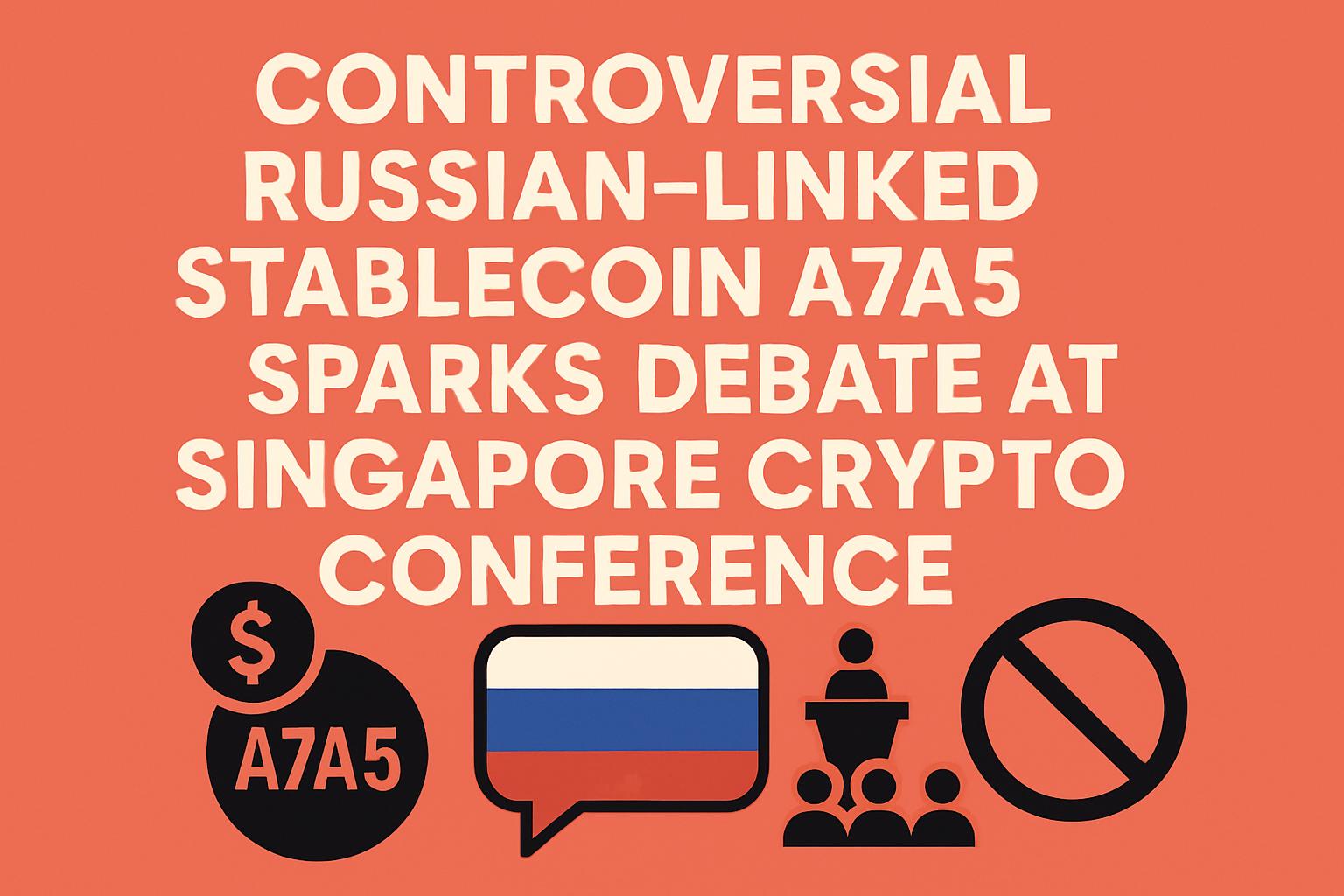In the buzzing world of cryptocurrency gatherings, Token 2049 in Singapore has emerged as a significant event. This year, however, it drew attention for more than just the innovation it usually showcases. The presence of A7A5, a stablecoin issuer tied to sanctioned Russian banks, raised eyebrows and questions about compliance and regulation, as they boldly established a massage zone as an official sponsor at the event.
A Forbidden Spectacle
A7A5’s ruble-backed stablecoin is connected with Old Vector and relies on Promsvyazbank (PSB), a state-owned Russian bank. This bank is on international sanction lists, including those of the U.S., U.K., and Singapore, due to its financial support for Russia’s defense industry amid the invasion of Ukraine. Singapore, known for its usually neutral stance, joined these sanctions, marking a significant departure from its traditional policies.
The Monetary Authority of Singapore (MAS) has clear prohibitions against engaging with major Russian banks and related digital asset providers as per the March 2023 notice. Yet, A7A5 not only attended Token 2049 but also made a public presentation, adding a layer of complexity to the narrative. In contrast, ex-White House crypto policy advisor Bo Hines lauded Tether’s compliant stablecoin, showcasing a juxtaposition of regulatory focus and oversight.
Legal Loopholes and Jurisdictional Loosening
The presence of A7A5 at Token 2049 was possible due to the event being organized by BOB Group, a Hong Kong-registered entity. While the event took place in Singapore, BOB Group adheres to Hong Kong regulations, where the stance on Russian sanctions aligns differently than with Western sanctions. Thus, A7A5 leveraged this jurisdictional loophole to participate in the conference legally.
Despite requests for comments, neither BOB Group nor MAS provided additional clarity as the controversy unfolded.
Industry Stir and Compliance Confusion
The participation of A7A5 ignited significant unrest within the crypto industry. According to CoinDesk, an anonymous executive from a cryptocurrency firm claimed that seeing A7A5 listed as a sponsor was akin to a “compliance nightmare.” Concerns grew over potential legal and reputational risks by associating, even indirectly, with sanctioned entities.
Ultimately, BOB Group discreetly removed A7A5 from the official sponsor list on their website. Nonetheless, snapshots and social media evidence continue to affirm A7A5’s sponsorship role, complete with their message encouraging relaxation and trading in the massage zone.
Revealing Sanction Gaps
This incident highlights vulnerabilities within the international sanctions framework across different jurisdictions. Although Singapore maintains a firm stance against Russian financial entities, if an event organizer operates under less stringent jurisdictions, they can bypass local regulations. Such scenarios allow sanctioned firms to infiltrate global financial and technological platforms, pushing forward their agendas.
The A7A5 incident not only underscores the challenges Singapore faces in global crypto regulation but also emphasizes the frailty of international cooperation mechanisms when legal responsibilities and geographic locations diverge.

![[News] Bitcoin at a Turning Point? 10x Research Signals a Bullish Macro Shift Ahead](https://cryptoexplores.com/wp-content/uploads/2025/06/new20250616.jpg)
![[News] Binance Lists $HOME, the Gas-Free, Bridge-Free All-in-One DeFi App](https://cryptoexplores.com/wp-content/uploads/2025/06/news20250617.jpg)